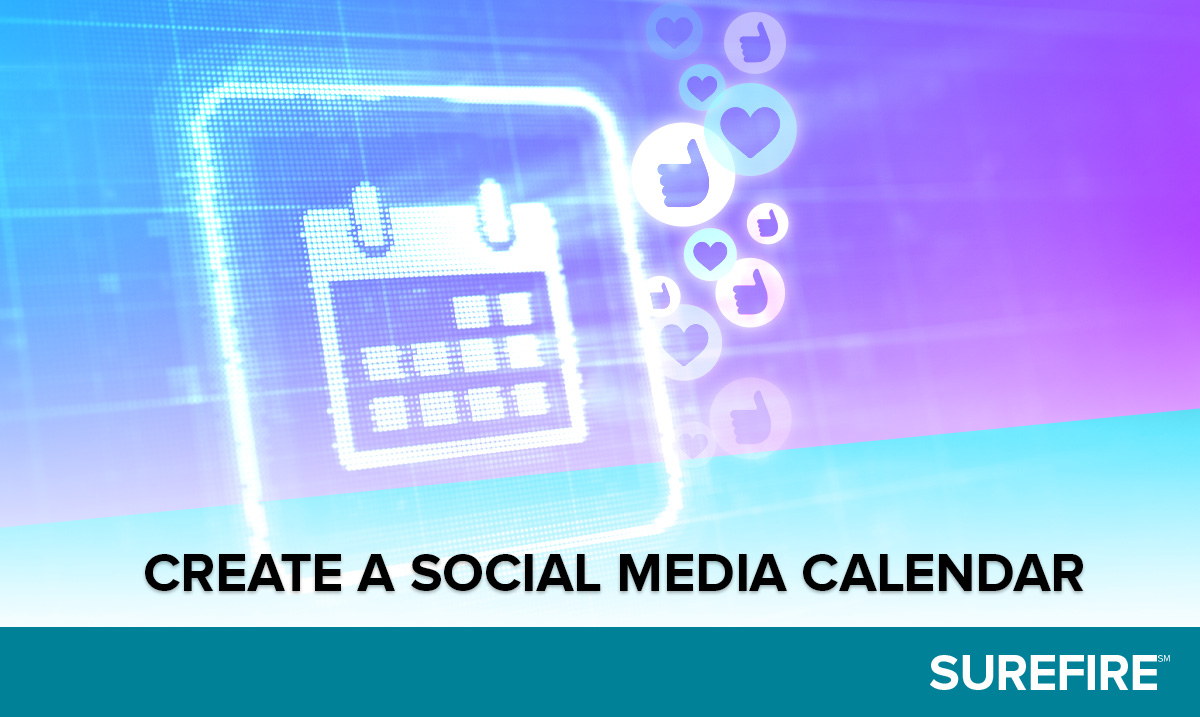Interest rates and prices aren’t the only things on the rise these days. Social media marketing for mortgage lenders is rising to must-have status as refinances dry up and purchases slow. But where do loan officers who have been busy with overflowing pipelines even start?
GET STARTED TODAY
Give Surefire a Try!
The best way to find out what we offer is to try it out yourself. We’re confident that you’ll like what you see.
First step: a social media calendar. By spending time up front to plan mortgage social media posts for both specific topics and general categories, mortgage loan officers can ensure cohesive, consistent messaging without daily headaches. Those plans are especially effective when combined with a strong mortgage CRM tool like Surefire.
Determine Categories of Mortgage Content for Social Media
When planning social media marketing for mortgage brokers, start with the types of messaging to share. Mixing up different categories of posts throughout the weeks and months will keep social media content interesting and varied while also covering all the areas needed.
Categories might include:
- Mortgage Programs
- Educational (including links to blog posts, educational flyers, calculators or interactive games)
- Holidays
- Events (could be educational events related to mortgages or community events)
- Mortgage News or Timely Updates
- Company News (new hires, community involvement, awards, etc.)
- Motivational
When planning specific posts, remember you can combine some categories. A recognition of National Doctors Day might also include information on special mortgage programs for doctors, or timely news about a rate increase can link to a house payment calculator to illustrate the difference rates can make.
Determine the Social Media Platforms You’ll Use
The two most important factors when selecting platforms are posting where your ideal prospects are likely to find you and posting on the social media channels where you’re most comfortable, especially initially.
TikTok, for example, may seem like the hottest social media channel around, but posting requires the creation of short videos. This is something a social media novice may not be comfortable doing. And while 48% of adults ages 18 to 29 reported using TikTok in 2021, only 22% of those ages 30 to 49 and only 10% of those ages 50 to 64 reported using the platform, according to a Pew Research Center study. It’s probably not the best place to capture the attention of mortgage prospects.
The same Pew Research study found that the majority of American adults report using Facebook. Instagram is among the sites most popular for the 30 and under group, and since items can be cross posted to Facebook and Instagram, those two platforms can form a good starting point for a mortgage social media plan. YouTube is actually the most used social platform, but for the variety of topics and types of mortgage content available, it will be better to use a site that extends beyond just video.
Build A Social Media Calendar
After determining the categories of posts and the platforms to use, begin building a social media calendar. A simple internet search will provide samples. Most follow one of two formats, either a spreadsheet or a calendar.
Social media calendars on spreadsheets typically are arranged with a column for each day of the week. A colored row represents each social media site, and rows beneath it create cells to enter topics under the days posted.
Calendar formats are convenient whether you’re using just one social media platform, or the same posts are used across multiple platforms. Simply enter the post topic on the day it will appear. Color-coding categories makes it easy to see immediately if the mix is strong.
As you fill out the calendar, start with a mix of broad mortgage social media content categories and specific topics, and plan for two or three posts a week. It’s easy to go ahead and put in specific holiday names. You also may be able to include specific posts for topics that are cyclical. For example, in typical markets spring is the busy home shopping season, so it may be a good time to share house payment calculators. Renovation loans or HELOCs may be popular in the spring and summer months.
Generally speaking, timely news cannot be pre-scheduled. However, some release dates are known in advance, and a placeholder can appear on the social media calendar. Fed meetings and FHFA Home Price Index announcements are good examples.
After the calendar is complete, identify or create specific posts, and use a marketing automation platform to schedule ahead where possible. A mortgage CRM tool like Surefire with a full library of mortgage social media content can help. Where it’s not possible to pre-schedule, as with timely content, set calendar reminders so you won’t forget.
Mortgage Social Media Content for Good and Challenging Markets
While mortgage social media content should always feel timely, social media calendars are timeless. Once created, a calendar can be duplicated then freshened and finessed year after year (or quarter after quarter, if you prefer working on a shorter timeframe).
If there are changes in a market, it’s important to revisit and adjust the calendar’s content as necessary. For example, a 2022 mortgage social media calendar that was pre-loaded with refinancing content is long overdue for an update.
To learn more about Surefire’s marketing automation and full mortgage content library, including social media marketing posts, schedule a demo today. We’d love to show you how to help your business grow – no matter what kind of market we’re in!

Renita Davis
Content Manager
As content manager at Top of Mind Networks, Renita develops award-winning marketing materials and strategies for mortgage companies. Throughout her career, Renita has managed public relations and produced both printed and online content for clients in the home building, affordable housing, real estate, mortgage lending, financial planning, and
environmental industries. As a ghostwriter, she has contributed to two books on social media marketing. Her work has also been published in numerous print and online trade publications for industries she supports.
Recent Articles From Renita Davis
Optimize Your Mortgage Pull Through Rate with the Right Mortgage CRM

